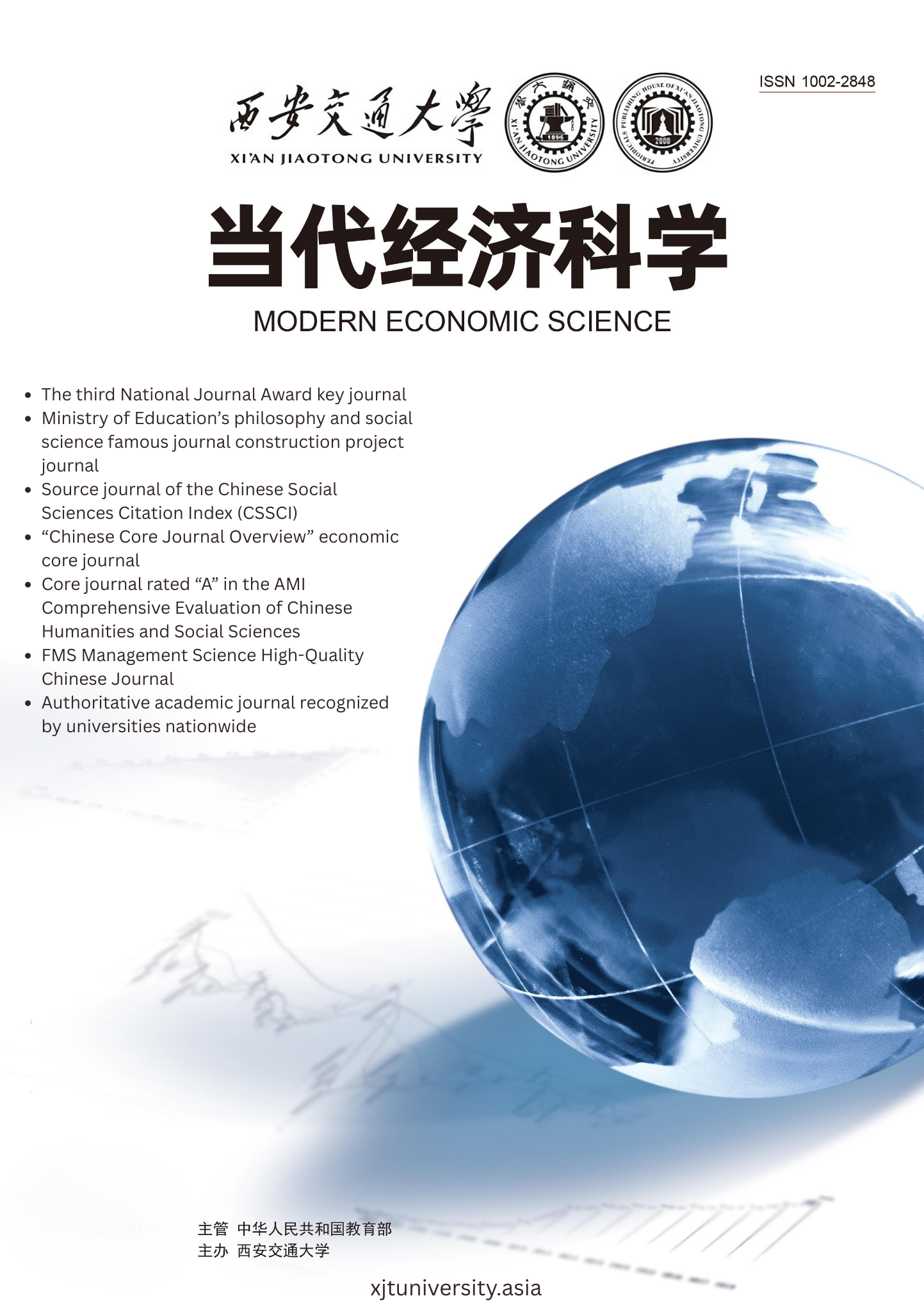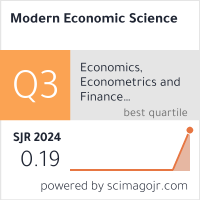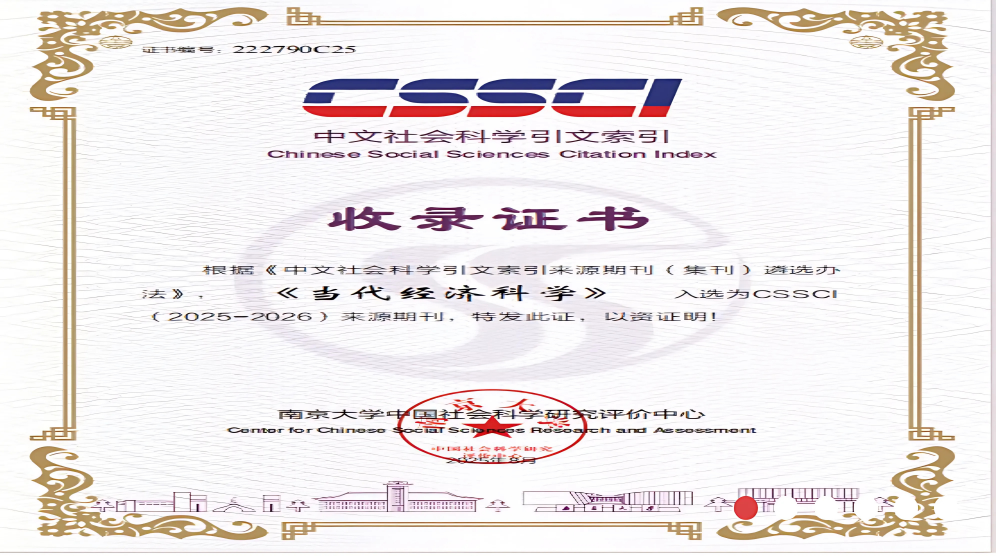Digital Transformation and Innovation of Private Enterprises in China
DOI:
https://doi.org/10.20069/wpxh3f95Keywords:
digital transformation, private enterprise, enterprise innovation, product design, customer managementAbstract
Under the macroeconomic context of Chinese-style modernization, the private economy serves as a crucial force driving economic growth, with its vitality and competitiveness being essential for high-quality development. Amid intensifying market competition and increasingly complex international situations, private enterprises urgently need breakthroughs in product innovation and business models. The advent of the digital era has created new opportunities for enterprises to reshape organizational processes, explore emerging markets, and strengthen core competitiveness. Digital technologies not only break down information barriers to enable more precise demand matching and market responsiveness but also bring profound transformations to internal management, production, and marketing approaches. Given these circumstances, clarifying the impact of digital transformation on the innovation capabilities of Chinese private enterprises from both theoretical and empirical perspectives not only provides insights for corporate decision-making but also establishes an evidence base for government policy formulation.
Based on data from the 14th Chinese Private Enterprise Survey, this study systematically examines the impact of digital transformation on the innovation capabilities of Chinese private enterprises and its underlying mechanisms. The findings indicate that: Digital transformation significantly enhances private enterprises’ innovation capabilities, positively influencing all stages of the innovation process—“input-output-conversion”—with conclusions remaining robust after a series of endogeneity treatments. Mechanistic analysis reveals that digital transformation enhances private enterprises’ innovation capabilities by improving product design capacities and customer management capabilities. Specifically, the product design capability mechanism operates across all three “input-output-conversion” stages, whereas the customer management capability mechanism only functions at the “output” stage. Extended analysis further indicates that higher degree of digital transformation yield better enabling effects on private enterprises’ innovation capabilities, and digitally transformed private enterprises shows a stronger tendency to allocate additional funds toward new product development, technological innovation, and process improvement.
Compared to existing research, this study makes three marginal contributions: First, it deepens the exploration of mechanisms through which digital transformation affects enterprise innovation from both the demand and supply sides by examining customer management and product design perspective. Second, it provides a more detailed characterization of digital transformation from an enterprise self-assessment perspective, encompassing both tangible and intangible aspects, thus measuring the actual degree of enterprise digital transformation more comprehensively. Third, using data from the 14th Chinese Private Enterprise Survey, it expands research on digital transformation and enterprise innovation to private enterprises, addressing the gap in previous studies that predominantly focused on A-share listed companies while neglecting private enterprises, thereby offering new perspectives and solid data support for empirically investigating the impact of digital transformation on Chinese private enterprises’ innovation.
Based on these findings, this paper proposes the following policy recommendations to effectively enable private enterprises’ innovation capabilities through digital transformation: First, continuous advancement of private enterprises’ digital transformation should be promoted, encouraging them to strengthen R&D investment, enhance intellectual property reserves, and effectively convert them into economic value through digital technologies. Government departments should further improve infrastructure development, provide financing support and special subsidies to create favorable conditions for enterprises to adopt digital technologies and cultivate digital talent. Second, emphasis should be placed on the deep integration of digitalization with product design and customer management, fully utilize digital means to extensively collect and apply product feedback data, optimize R&D and design processes, and shorten product iteration cycles. Simultaneously, by acquiring and analyzing customer data in real time, enterprises can accurately capture consumer preferences, achieve personalized products and differentiated services, and enhance market fit. Finally, both the depth and breadth of digital development should be advanced simultaneously, forming systematic and in-depth reforms across technology, processes, and culture to create a digital ecosystem the entire value chain, thereby continuously stimulating enterprises’ internal innovation dynamics.
Downloads
References
[1] 王彦超, 李玲, 王彪华. 税收优惠与财政补贴能有效促进企业创新吗: 基于所有制与行业特征差异的实证研究 [J]. 税务研究, 2019, 35(6):92-98.
Wang Y C, Li L, Wang B H. On the effects of tax incentives and subsidies on promotion of enterprise innovation [J]. Taxation Research, 2019, 35(6):92-98.
[2] 毛宁, 杨运杰, 尹志锋. “单向混改”还是“双向混改”: 民营企业混合所有制改革路径选择对企业创新的影响 [J]. 经济管理, 2023, 45(1):85-104.
Mao N, Yang Y J, Yin Z F. “One-way mixed reform” or “two-way mixed reform”? The effect of the mixed ownership reform on the private enterprise innovation [J]. Business and Management Journal, 2023, 45(1):85-104.
[3] 李晓翔, 张树含. 数字化转型如何影响企业融通创新? [J]. 经济管理, 2023, 45(4):41-63.
Li X X, Zhang S H. How does digital transformation influence enterprise co-innovation? [J]. Business and Management Journal, 2023, 45(4):41-63.
[4] 李治国, 孔维嘉, 李兆哲. 制造业企业数字化转型的碳绩效: 内在机制与经验证据 [J]. 当代经济科学, 2024, 46(4):100-111.
Li Z G, Kong W J, Li Z Z. Carbon performance of digital transformation of manufacturing enterprises: internal mechanism and empirical evidence [J]. Modern Economic Science, 2024, 46(4):100-111.
[5] 倪克金, 刘修岩. 数字化转型与企业成长: 理论逻辑与中国实践 [J]. 经济管理, 2021, 43(12):79-97.
Ni K J, Liu X Y. Digital transformation and enterprise growth: logic and practice of China’s capital market [J]. Economic Management Journal, 2021, 43(12):79-97.
[6] Chen L, Tur X, Huang B X, et al. Digital transformation’s impact on innovation in private enterprises: evidence from China [J]. Journal of Innovation & Knowledge, 2024, 9(2):100491.
[7] Ghobakhloo M. Industry 4.0, digitization, and opportunities for sustainability [J]. Journal of Cleaner Production, 2020, 252:119869.
[8] 陈岩, 张斌. 基于所有权视角的企业创新理论框架与体系 [J]. 经济学动态, 2013, 54(9):50-59.
Chen Y, Zhang B. Theoretical framework and system of enterprise innovation from an ownership perspective [J]. Economic Perspectives, 2013, 54(9):50-59.
[9] 周红星, 黄送钦. 数字化能为创新“赋能”吗: 数字化转型对民营企业创新的影响 [J]. 经济学动态, 2023, 64(7):69-90.
Zhou H X, Huang S Q. Can digitalisation empower innovation? The impact of digital transformation on innovation in private enterprises [J]. Economic Perspectives, 2023, 64(7):69-90.
[10] Schumpeter J A. The theory of economic development: an inquiry into profits, capital, credit, interest and the business cycle [M]. New Brunswick: Transaction Books, 1983:57-64.
[11] 陈东. 私营企业出资人背景、投机性投资与企业绩效 [J]. 管理世界, 2015, 31(8):97-119.
Chen D. The background of the funds provider of the private firms, the speculative investment, and firm’s performance [J]. Journal of Management World, 2015, 31(8):97-119.
[12] 邵文波, 李坤望. 信息技术、团队合作与劳动力需求结构的差异性 [J]. 世界经济, 2014, 37(11):72-99.
Shao W B, Li K W. Information technology, teamwork, and disparities in labor demand structure [J]. The Journal of World Economy, 2014, 37(11):72-99.
[13] 胡海波, 卢海涛. 企业商业生态系统演化中价值共创研究: 数字化赋能视角 [J]. 经济管理, 2018, 40(8):55-71.
Hu H B, Lu H T. The value co-creation in the evolution of enterprise business ecosystem: the perspective of digital enablement [J]. Business and Management Journal, 2018, 40(8):55-71.
[14] 戚聿东, 肖旭. 数字经济时代的企业管理变革 [J]. 管理世界, 2020, 36(6):135-152.
Qi Y D, Xiao X. Transformation of enterprise management in the era of digital economy [J]. Journal of Management World, 2020, 36(6):135-152.
[15] 肖静华, 吴瑶, 刘意, 等. 消费者数据化参与的研发创新: 企业与消费者协同演化视角的双案例研究 [J]. 管理世界, 2018, 34(8):154-173.
Xiao J H, Wu Y, Liu Y, et al. New product development innovation with customer digitalized engagement: a comparative case study from the firm-customer coevolutionary perspective [J]. Journal of Management World, 2018, 34(8):154-173.
[16] 陈剑, 黄朔, 刘运辉. 从赋能到使能: 数字化环境下的企业运营管理 [J]. 管理世界, 2020, 36(2):117-128.
Chen J, Huang S, Liu Y H. Operations management in the digitization era: from empowering to enabling [J]. Journal of Management World, 2020, 36(2):117-128.
[17] 刘洋, 董久钰, 魏江. 数字创新管理: 理论框架与未来研究 [J]. 管理世界, 2020, 36(7):198-217.
Liu Y, Dong J Y, Wei J. Digital innovation management: theoretical framework and future research [J]. Journal of Management World, 2020, 36(7):198-217.
[18] 黄群慧, 贺俊. “第三次工业革命”与中国经济发展战略调整: 技术经济范式转变的视角 [J]. 中国工业经济, 2013, 31(1):5-18.
Huang Q H, He J. The third industrial revolution and the adjustment of China’s economic strategy: transformation of the techno-economic paradigm [J]. China Industrial Economics, 2013, 31(1):5-18.
[19] 刘淑春, 闫津臣, 张思雪, 等. 企业管理数字化变革能提升投入产出效率吗 [J]. 管理世界, 2021, 37(5):170-190.
Liu S C, Yan J C, Zhang S X, et al. Can corporate digital transformation promote input-output efficiency? [J]. Journal of Management World, 2021, 37(5):170-190.
[20] 易靖韬, 王悦昊. 数字化转型对企业出口的影响研究 [J]. 中国软科学, 2021, 36(3):94-104.
Yi J T, Wang Y H. Research on the impact of digital transformation on firm exports [J]. China Soft Science, 2021, 36(3):94-104.
[21] 杨国超, 芮萌. 高新技术企业税收减免政策的激励效应与迎合效应 [J]. 经济研究, 2020, 55(9):174-191.
Yang G C, Rui M. The incentive effect and catering effect of tax-reducing policy for high-tech enterprises [J]. Economic Research Journal, 2020, 55(9):174-191.
[22] 卫平, 汤雅茜. 高新技术企业创新能力提升及其驱动因素: 来自7城市企业微观调查数据的证据 [J]. 改革, 2020, 33(6):136-147.
Wei P, Tang Y X. The promotion of innovation ability of high-tech enterprises and its driving factors: evidence from micro survey data of enterprises in seven cities [J]. Reform, 2020, 33(6):136-147.
[23] 刘启仁, 铁瑛. 企业雇佣结构、中间投入与出口产品质量变动之谜 [J]. 管理世界, 2020, 36(3):1-23.
Liu Q R, Tie Y. Employment structure, intermediate inputs and China’s mystery of changes in export product quality [J]. Journal of Management World, 2020, 36(3):1-23.
[24] Fisman R, Svensson J. Are corruption and taxation really harmful to growth? Firm level evidence [J]. Journal of Development Economics, 2007, 83:63-75.
[25] Huang C, Arundel A V, Hollanders H J G M. How firms innovate: R&D, non-R&D, and technology adoption [J]. Journal of International Business Studies, 2010, 40(8):1260-1276.
[26] 杨鹏, 尹志锋, 孙宝文. 企业数字技术应用与创新效率提升 [J]. 外国经济与管理, 2024, 46(11):51-67.
Yang P, Yin Z F, Sun B W. Digital technology application and innovation efficiency improvement [J]. Foreign Economics & Management, 2024, 46(11):51-67.
[27] Arora A, Fosfuri A, Gambardella A. Markets for technology and their implications for corporate strategy [J]. Industrial and Corporate Change, 2001, 10(2):419-451.
[28] 刘淑春. 中国数字经济高质量发展的靶向路径与政策供给 [J]. 经济学家, 2019, 31(6):52-61.
Liu S C. Targeting path and policy supply for the high-quality development of China’s digital economy [J]. Economist, 2019, 31(6):52-61.
[29] 刘涛雄, 徐晓飞. 互联网搜索行为能帮助我们预测宏观经济吗? [J]. 经济研究, 2015, 50(12):68-83.
Liu T X, Xu X F. Can Internet search behavior help to forecast the macroeconomy? [J]. Economic Research Journal, 2015, 50(12):68-83.
[30] Kallinikos J, Aaltonen A, Marton A. The ambivalent ontology of digital artifacts [J]. MIS Quarterly, 2013, 37(2):357-370.
Downloads
Published
Issue
Section
License
Copyright (c) 2025 Editorial Board of Modern Economic Science

This work is licensed under a Creative Commons Attribution-NonCommercial 4.0 International License.













